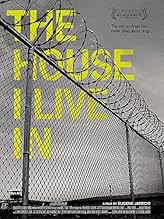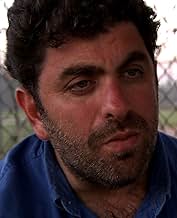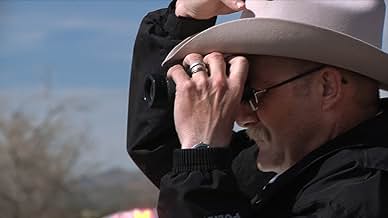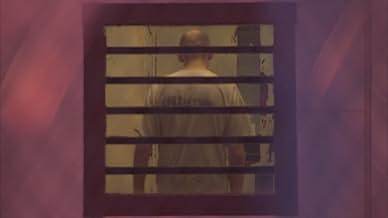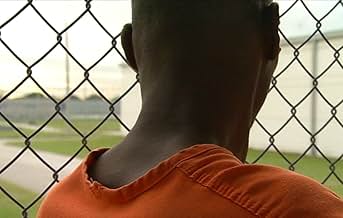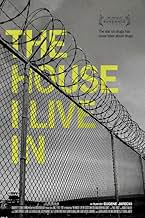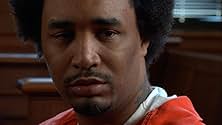Aggiungi una trama nella tua linguaFrom the dealer to the narcotics officer, the inmate to the federal judge, a penetrating look inside America's criminal justice system, revealing the profound human rights implications of U.... Leggi tuttoFrom the dealer to the narcotics officer, the inmate to the federal judge, a penetrating look inside America's criminal justice system, revealing the profound human rights implications of U.S. drug policy.From the dealer to the narcotics officer, the inmate to the federal judge, a penetrating look inside America's criminal justice system, revealing the profound human rights implications of U.S. drug policy.
- Regia
- Sceneggiatura
- Star
- Premi
- 4 vittorie e 3 candidature totali
- Self - Harvard University
- (as Prof. William Julius Wilson)
- Self - Providence Police
- (as Lt. Glendon Goldsboro)
- Self - Commanding Officer, Narcotics
- (as Lt. Michael Correia)
- Self - Physician, Addiction Expert
- (as Dr. Gabor Maté)
- Self - U.S. Federal Judge
- (as Hon. Mark Bennett)
- Self - Maurice's Lawyer
- (as Jim McGough)
- Self - Lexington Corrections Center
- (as Warden Eric Franklin)
- Self - Harvard University
- (as Prof. Charles J. Ogletree)
Recensioni in evidenza
There's a lyric I remember that says "I hate it when they tell us how far we came to be - as if our peoples' history started with slavery." Well, the history of subjugating minorities has not ENDED with slavery either, and retrospective condemnation of racism serves the purpose to perpetuate the racism embedded and invested in our country today.
The most important mistake is to confuse failure with success in regards to the apparent shortcomings of our establishment. I again use the example of public schools because the recent documentary "Waiting for Superman" did a fantastic job in addressing the "failures" of schools to educate children. It takes a book like James Lowen's Lies My Teacher Told Me to recognize the grand success of our school's indoctrination process: to teach obedience, not intelligence. It takes a documentary like The House I Live In to vocalize the airtight success of our administration in conducting the 41 years' drug war.
Logic should compute. If more money has been spent (a trillion dollars since the '70s,) the prison population has skyrocketed (2.4 million people incarcerated) and no progress has been made in keeping drugs off the streets, (similarly with our schools, with reform after reform we continue to perform beneath the feet of most industrialized countries,) you have to start looking at things a little differently. It is hard to see the exit of the maze when walking within its walls. This documentary helps to see things from the outside.
This film brings to light a lot of revealing facts that have been swept under the rug, like how opium wasn't an issue until Chinese started climbing the success latter in San Francisco, or how the police in border states can directly siphon the money from drug busts to reward their outfit. Mostly, it encourages a comparison between the way minorities have been apprehended with drug abuse and the apprehension of whites (who hold equal if not higher drug abuse statistics but make up a minority of the prison population.) And it encourages comparison between past, mass scale subjugation (often with eventual extermination) and, to quote the film, the slow-motion holocaust happening in our own country.
It recognizes the drug epidemic as an economic issue and a medical issue, not a racial issue. It recognizes the drug WAR as the glaring rash of vibrant racism, and the brutal front of a class war in a society where profits come first, human beings second. More to this point, it eludes to the country's prime motivation, net gain and increased GDP, and the plethora of companies from Sprint Mobile to GM to privatized prisons such as CCA, all of whom depend on the drug war to maintain stock value.
To quote ousted investigative journalist and ex-LAPD narcotics officer Michael Ruppert, "A snake eating its own tail is not nutritious."
Though it is outside the periphery of the film's focus and beyond the pale even for a documentary of this substance, the issue of international drug trafficking, and facilitation it has received, at times, from both the financial sector and intelligence agency of our country, was never brought to light in this film. Despite whether this topic is to be written off as conspiracy theory or submitted for further analysis, a film that introduces our economy's dependence on drug dependence and the targeting of minorities in an everlasting drug war, has a duty to at least address the controversy. I suggest raising the question on discussion boards and at Q&As, as my screening was lucky enough to have.
We live in a country that is infested with racism, now as much as any other time. Our economy depends on it, and the drug war has fertilized it. It is time to end it.
Even more revealing is how Eugene Jarecki examines the history of drugs and how it's always been more the case that the poor and those that are black will be arrested for drug crimes. It's clear that many that live in a race and culture of downtrodden ridden history and black have simply became a statistical number for law enforcement to arrest. All while politicians on both side profit and get fat from fighting the drug war. Clearly they don't understand they need to stop locking people up for small drug offenses to save prison space for more serious criminals. Overall good doc that questions the way we are handling business in fighting the drug war it's educational and thought provoking no matter what your stance on the drug policy is.
It's interesting the director, Eugene Jarecki, also did "Why We Fight", one of the best documentaries to expose the crimes being committed by the blood money Military Industrial Complex. The public is also largely oblivious to that evil profiteering monster and also happily supports it to the point it thinks murdering and dying for it is a good thing. Jarecki makes some of the most important and enlightening documentaries of today. It's an alarming shame and tragedy that the predominately ignorant and not very mentally healthy general public aren't watching them, let alone able to comprehend how it hurts everyone except the bank accounts of sociopathic "business" men and women.
Perhaps the common denominator is the same fuel that's driving half of the present day voters in the Presidential election: hatred and the eternal search for scapegoats. It would make an excellent documentary to tie these core driving forces together, a task I think Mr. Jarecki is capable of doing well. It probably won't make much of an impact beyond preaching to the choir but then again none of his other fine offerings have fared much better and those are still greatly appreciated by thoughtful and humane audiences.
The filmmakers seamlessly describe the complexities that underly the drug war and mass incarceration. Then they show the devastating unintended consequences of this misguided policy approach. Finally, they raise important questions that will help to craft a new way forward.
I am going to do my part to get as many people that I can to see this film. I'm posting it on Facebook, I'm writing reviews, and I'm telling people about it in my capacity as a trainer in child welfare.
The filmmakers deserve a huge thank you for calling out the ugly truth of the drug war in a way that we can understand it, and do something about it.
America has more of its citizens behind bars than in any other nation on the planet, and we presently have more Blacks incarcerated than were slaves in the Confederate States of America during the 1850's. And, America's misguided approach to the issue of illegal drugs is the single most important reason why so many of us are in prison.
These are only a couple of startling revelations from Eugene Jarecki's riveting documentary about America's terribly misguided War On Drugs. Clearly we have chosen to solve a health issue by creating a ridiculous legal and political policy based on an oxymoron called, 'the criminal justice system'. Racial scapegoating and a system based on 'prisons for profit' have allowed us to spend billions, yet more people use illegal drugs today than when the drug war first began. And, the quality of these drugs is infinitely superior.
No one, not the authorities or the criminals, seem to be satisfied with the status quo, and readily admit that the whole affair is an abject failure. But, the film shows how this suicidal social policy remains locked in place with no end in sight. Politicians campaign on making this nation drug free, and addiction rates soar and we can't seem to build jails quickly enough to fill them.
If there was ever a solution that was immeasurably worse than the problem, it is The War On Drugs. ABSOLUTE MUST SEE
Lo sapevi?
- Citazioni
Herself - Author, The New Jim Crow: You know, in any war, you've got to have an enemy, and when you think about impact, particularly on poor people of color, there are more African-Americans under correctional control today in prison or jail, on probation or parole, than were enslaved in 1850, a decade before the Civil War began. And that's something we haven't been willing to look in the mirror and ask ourselves, "what's really going on?"
- ConnessioniEdited into Independent Lens: The House I Live In (2013)
- Colonne sonoreGrandma's Hands
Written by Bill Withers
Published by Songs of Universal, Inc. on behalf of Interior Music Corp.
Performed by Bill Withers
Courtesy of Columbia Records
By arrangement with Sony Music Licensing
I più visti
- How long is The House I Live In?Powered by Alexa
Dettagli
- Data di uscita
- Paesi di origine
- Siti ufficiali
- Lingua
- Celebre anche come
- Guerra contra las drogas
- Luoghi delle riprese
- New Haven, Connecticut, Stati Uniti(Interview)
- Aziende produttrici
- Vedi altri crediti dell’azienda su IMDbPro
Botteghino
- Lordo Stati Uniti e Canada
- 210.752 USD
- Fine settimana di apertura Stati Uniti e Canada
- 16.453 USD
- 7 ott 2012
- Lordo in tutto il mondo
- 219.159 USD





